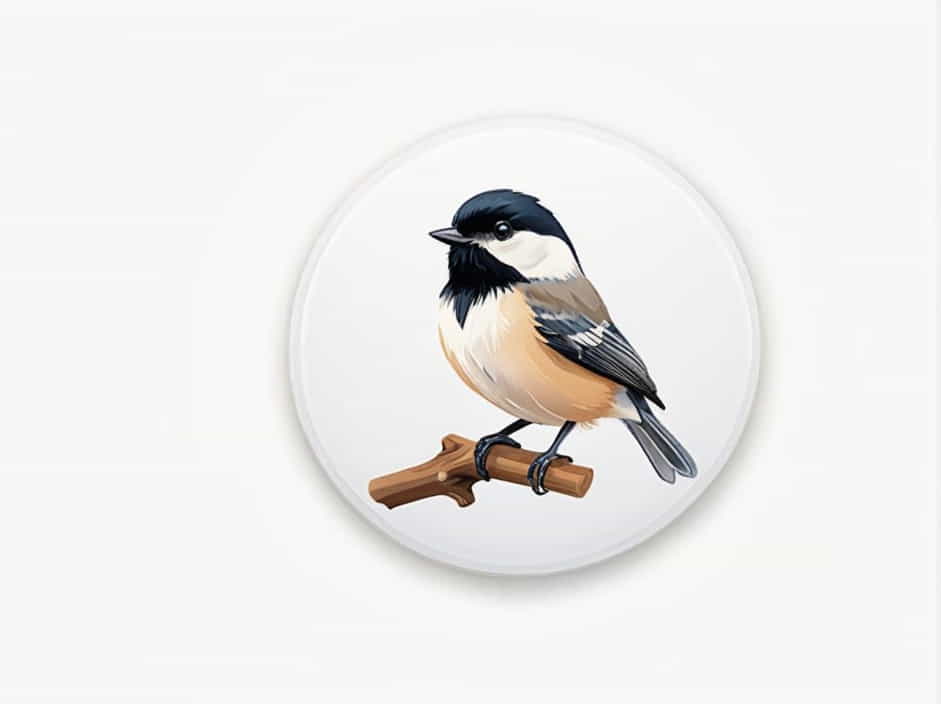The chickadee is a small, lively songbird known for its curious nature and cheerful calls. These birds are common in North America and are often seen in forests, parks, and backyard feeders. One question that bird enthusiasts frequently ask is: how long does a chickadee live?
In this topic, we will explore the lifespan of chickadees, the factors affecting their survival, and how they adapt to different environments.
1. Average Lifespan of a Chickadee
The lifespan of a chickadee varies depending on the species and environmental conditions.
How Long Do Chickadees Live in the Wild?
- On average, chickadees live between 2 to 3 years in the wild.
- However, some individuals have been recorded living up to 10-12 years under ideal conditions.
Lifespan by Species
There are several species of chickadees, each with a slightly different lifespan:
- Black-capped Chickadee (Poecile atricapillus) – 2 to 3 years on average, with some reaching 11 years.
- Carolina Chickadee (Poecile carolinensis) – 4 to 6 years, with some recorded at 10 years.
- Mountain Chickadee (Poecile gambeli) – 2 to 5 years.
- Chestnut-backed Chickadee (Poecile rufescens) – 2 to 3 years.
Despite their short average lifespan, some chickadees survive much longer under the right conditions.
2. Factors That Affect a Chickadee’s Lifespan
Several factors influence how long a chickadee lives, including predators, food availability, weather, and disease.
Predation
Chickadees are small and vulnerable to many predators, including:
- Birds of prey (hawks, owls, falcons)
- Snakes
- Domestic cats
- Larger birds like jays and crows
Predation is one of the main reasons why chickadees have a short lifespan in the wild.
Harsh Weather Conditions
Chickadees do not migrate, meaning they have to survive cold winters.
- During extreme cold, they fluff up their feathers and enter a state of torpor to conserve energy.
- However, prolonged freezing temperatures can still lead to starvation or death.
Food Availability
A steady food supply is crucial for chickadee survival.
- In winter, chickadees store food in hidden locations to eat later.
- A lack of food due to harsh weather or habitat loss can reduce their lifespan.
Disease and Parasites
Chickadees can suffer from diseases such as:
- Avian pox
- Salmonella infections
- Mites and lice
Birds that visit feeders often spread diseases, which can reduce survival rates.
3. How Do Chickadees Adapt to Survive?
Despite their small size, chickadees have developed amazing survival strategies.
Memory and Food Storage
- Chickadees are known for their excellent memory.
- They store seeds and insects in different locations and can remember where they hid them.
Torpor: Energy Conservation in Cold Weather
- In winter, chickadees enter a state of torpor, where their body temperature drops to conserve energy.
- This adaptation allows them to survive freezing nights.
Flocking for Protection
- Chickadees often form mixed-species flocks with other small birds.
- Being in a group helps them detect predators faster.
4. How Long Do Chickadees Live in Captivity?
Chickadees in captivity tend to live longer than their wild counterparts.
- With proper care, chickadees can live up to 10-12 years in captivity.
- They avoid predators, have access to food year-round, and receive medical care.
However, chickadees are not common as pets because they are wild birds that thrive in their natural habitats.
5. How Can You Help Chickadees Live Longer?
If you enjoy watching chickadees in your yard, there are ways to support their survival.
Provide Food Sources
- Set up a bird feeder with sunflower seeds, peanuts, and suet.
- Avoid moldy or spoiled food, which can make birds sick.
Offer Safe Nesting Areas
- Chickadees prefer tree cavities or nest boxes.
- Providing a nest box can help them find a safe place to raise their young.
Protect Them from Predators
- Keep pet cats indoors to prevent them from hunting small birds.
- Use baffles on bird feeders to keep away squirrels and other predators.
Maintain Clean Feeders
- Clean bird feeders regularly to prevent the spread of disease.
- Remove any wet or moldy seeds that could harm chickadees.
6. Fun Facts About Chickadees
- Chickadees can remember thousands of food storage locations!
- Their name comes from their “chick-a-dee-dee-dee” call.
- They are one of the few birds that stay in the same place year-round.
- Chickadees can lower their body temperature by 10-15°F during torpor.
- They are considered a symbol of happiness and curiosity in many cultures.
The lifespan of a chickadee is typically 2 to 3 years, but some individuals live over a decade in ideal conditions. These small birds face challenges such as predators, harsh weather, and disease, but their intelligence and survival adaptations help them thrive.
By providing food, shelter, and protection, you can help chickadees live longer and continue to enjoy their cheerful presence in your backyard.
